Filter by
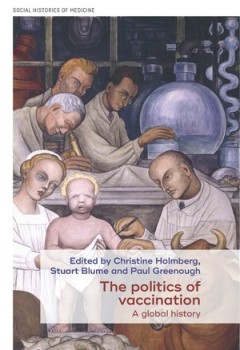
The Politics of Vaccination : A Global History
Mass vaccination campaigns are political projects that presume to protect individuals, communities, and societies. Like other pervasive expressions of state power— taxing, policing, conscripting— mass vaccination arouses anxiety in some people but sentiments of civic duty and shared solidarity in others. This collection of essays gives a comparative overview of vaccination at different time…
- Edition
- -
- ISBN/ISSN
- 9781526110886
- Collation
- -
- Series Title
- -
- Call Number
- -
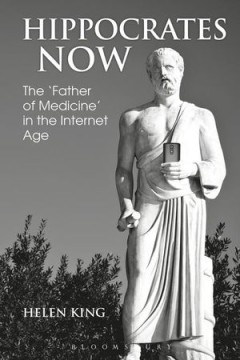
Hippocrates Now : The ‘Father of Medicine’ in the Internet Age
This book challenges widespread assumptions about Hippocrates (and, in the process, about ancient Greek medicine) and will also explore the creation of modern myths about the ancient world. Through the lens of reception studies Helen King considers what ‘Hippocrates’ means today. He features powerfully in our assumptions about ancient medicine, and our beliefs about what medicine – and th…
- Edition
- -
- ISBN/ISSN
- 9781350005914
- Collation
- -
- Series Title
- -
- Call Number
- -
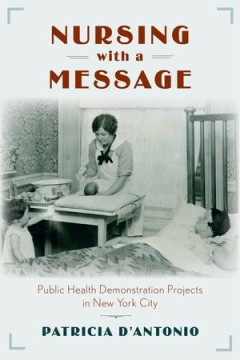
Nursing With a Message : Public Health Demonstration Projects in New York City
Nursing with a Message transports readers to New York City in the 1920s and 1930s, charting the rise and fall of two community health centers in the neighborhoods of East Harlem and Bellevue-Yorkville. Award-winning historian Patricia D’Antonio examines the day-to-day operations of these clinics, as well as the community outreach work done by nurses who visited schools, churches, and hom…
- Edition
- -
- ISBN/ISSN
- 9780813571034
- Collation
- -
- Series Title
- -
- Call Number
- -
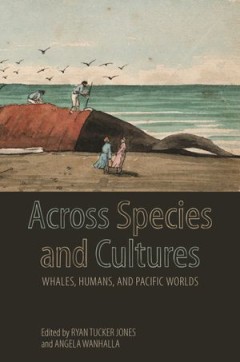
Across Species and Cultures (PDF) Whales, Humans, and Pacific Worlds
More than any other locale, the Pacific Ocean has been the meeting place between humans and whales. From Indigenous Pacific peoples who built lives and cosmologies around whales, to Euro-American whalers who descended upon the Pacific during the nineteenth century, and to the new forms of human-cetacean partnerships that have emerged from the late twentieth century, the relationship between the…
- Edition
- -
- ISBN/ISSN
- 9780824892135
- Collation
- -
- Series Title
- -
- Call Number
- -
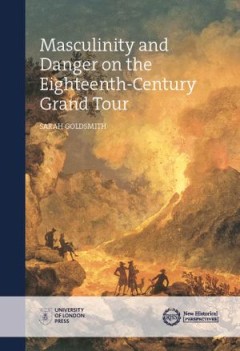
Masculinity and Danger on the Eighteenth-Century Grand Tour
The Grand Tour was a journey to continental Europe undertaken by British nobility and wealthy landed gentry during the seventeenth and eighteenth centuries. As a rite of passage, the Tour also played an important role in the formation of contemporary notions of elite masculinity. Examining letters, diaries and other records left by Grand Tourists, tutors and their families, this book demonstrat…
- Edition
- -
- ISBN/ISSN
- 9781912702220
- Collation
- -
- Series Title
- -
- Call Number
- -
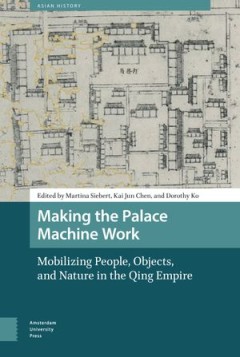
Making the Palace Machine Work: Mobilizing People, Objects, and Nature in the…
This volume brings the studies of institutions, labour, and material cultures to bear on the history of science and technology by tracing the workings of the Imperial Household Department (Neiwufu) in the Qing court and empire. An enormous apparatus that employed 22,000 men and women at its heyday, the Department operated a "machine" with myriad moving parts. The first part of the book portrays…
- Edition
- -
- ISBN/ISSN
- 9789048553228
- Collation
- -
- Series Title
- -
- Call Number
- -
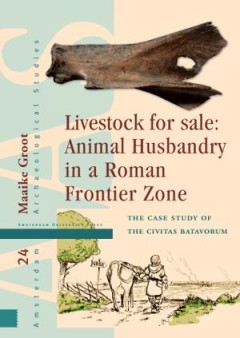
Livestock for Sale: Animal Husbandry in a Roman Frontier Zone
The civitas Batavorum was a settlement on the north-western frontier of the Roman Empire, and it is now the site of numerous archaeological excavations. This book offers the most up-to-date look yet at what has been discovered, using the newest archaeological techniques, about the town and its economy, its military importance, and the religious and domestic buildings it held. It will be essenti…
- Edition
- -
- ISBN/ISSN
- 9789048530281
- Collation
- -
- Series Title
- -
- Call Number
- -
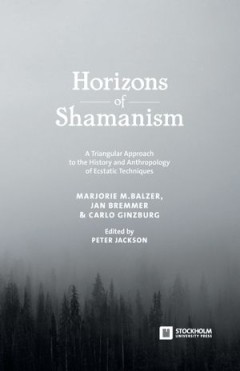
Horizons of Shamanism: a Triangular Approach To The History and Anthropology …
"The multifarious and sometimes contested concept of “shamanism” has aroused intense popular and scholarly interest since its initial coinage by the Russian scholar V. M. Mikhailovsky in the late 19th century. In this book, three leading scholars, representing different branches of the humanities, dwell on the current status of shamanic practices and conceptions of the soul, both as ‘etic…
- Edition
- -
- ISBN/ISSN
- 9789176350270
- Collation
- -
- Series Title
- -
- Call Number
- 301
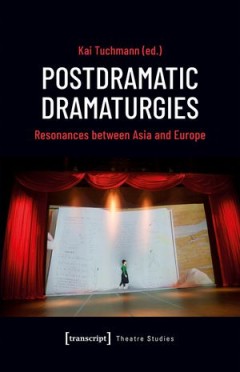
Postdramatic Dramaturgies: Resonances between Asia and Europe
This book compiles lectures by the world's leading practitioners of postdramatic theatre from East Asia and the German-speaking world, which were given at Asia's only dramaturgy degree program at The Central Academy of Drama in Beijing 2018/19. It includes first-time English-language scripts of the discussed plays. The material is complemented by contextualizing essays by the program founder Li…
- Edition
- -
- ISBN/ISSN
- 9783839459973
- Collation
- -
- Series Title
- -
- Call Number
- 792 POS p
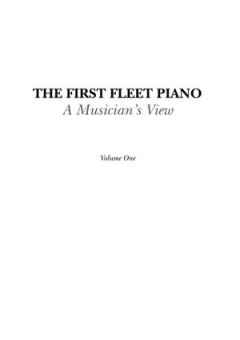
The First Fleet Piano: Volume One and Two
During the late eighteenth century, a musical–cultural phenomenon swept the globe. The English square piano—invented in the early 1760s by an entrepreneurial German guitar maker in London—not only became an indispensable part of social life, but also inspired the creation of an expressive and scintillating repertoire. Square pianos reinforced music as life’s counterpoint, and were playe…
- Edition
- -
- ISBN/ISSN
- 9781922144645
- Collation
- -
- Series Title
- -
- Call Number
- 780
 Computer Science, Information & General Works
Computer Science, Information & General Works  Philosophy & Psychology
Philosophy & Psychology  Religion
Religion  Social Sciences
Social Sciences  Language
Language  Pure Science
Pure Science  Applied Sciences
Applied Sciences  Art & Recreation
Art & Recreation  Literature
Literature  History & Geography
History & Geography